Five University of Iowa College of Education faculty members gave a glimpse into their ongoing research at the first UI College of Education’s Research Colloquium, featuring Faculty Research Award recipients Nov. 13. This will be an annual event.
Saba Ali, an associate professor in counseling psychology, presented, “Project HOPE (Health Sciences Occupations Preparation and Exploration): The Impact of Career Education on the Health Science Career Interests of Rural Middle School Students.” David Bills, a professor in schools, culture, and society, presented his research, “The Face of Inequality: Brazil in the Late 20th Century.” Allison Bruhn, an assistant professor in special education, presented, “Examining the Effects of an Integrated Reading and Behavioral Intervention.” Kristen Missall, an associate professor in school psychology, presented, “The Scale of Social Competence and School Adjustment for Preschoolers: Need and Development.” Soonhye Park, an associate professor in science education, presented “Type Measure of Teachers’ Pedagogical Content Knowledge (PCK) for Teaching High School Biology.”
Faculty Research Awards are $1,000 awards funded through a partnership between the UI College of Education and Iowa Testing Programs. Nearly two dozen awards were granted last spring.
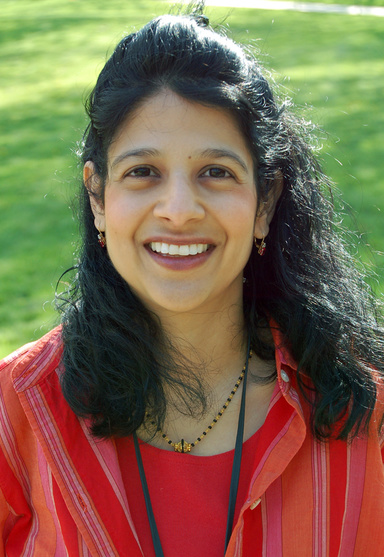
Ali’s Project HOPE aims to help students understand “their own career development and connect it to academics.” The project, in place in West Liberty and Columbus Junction, two Iowa communities with large Latino populations, focuses on health care occupations. Ali reports that this field has a dire need to increase its diversity—while minorities make up 33 percent of the U.S. population, only between five and nine percent of health care workers nationwide are minorities.
“We have a kind of crisis going on where we have more and more people of color coming to Iowa but less than one percent of the health care workforce who are minorities themselves,” Ali says.
The program lasts six weeks and culminates in a field trip to the UI campus where students can interact with minority UI students and professionals in health science fields.
Project HOPE was selected as one of 12 Iowa Gov. Terry Branstad’s STEM Scale-Up projects in 2012-13, which will allow the program to expand to additional communities.
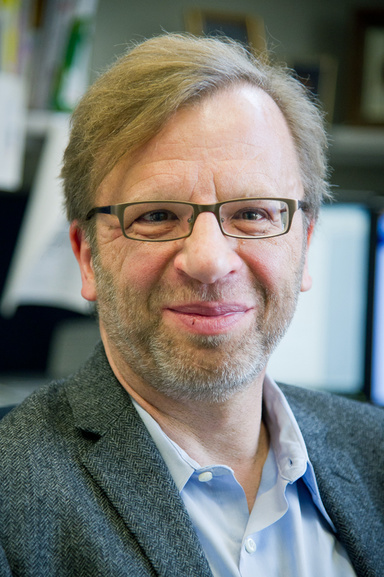
Bills has been working for several years on interpreting the first large-scale, nationally representative data set for the people of Brazil and using it to define social stratification in Latin America’s largest country.
“Brazil is interesting in many ways,” Bills says. “The northeastern part of Brazil is the most unequal area in the hemisphere.”
Bills is using his Faculty Research Award funds to write a concluding chapter to a book he intends to publish online. The chapter will provide insight into what has happened in Brazil in the years since that first large-scale data set was collected nearly four decades ago.
In that time, Bills says Brazil has changed in four primary ways. First, it has emerged as an economic super power, seeing economic growth primarily in agriculture. Second, Brazil has realized significant educational expansion. When Bills’ group did its study, the average level of education in Brazil was three to four years. Now it is common for Brazilians to attend college. Third, Bills observes occupational upgrading, but notes there is still persistent inequality. Finally, Brazil has developed political and civic democratic stability.
“It’s hard to run a country and build an educational system when you don’t know which general will be in charge next week,” Bills says. “That political stability has been a major part of the story.”
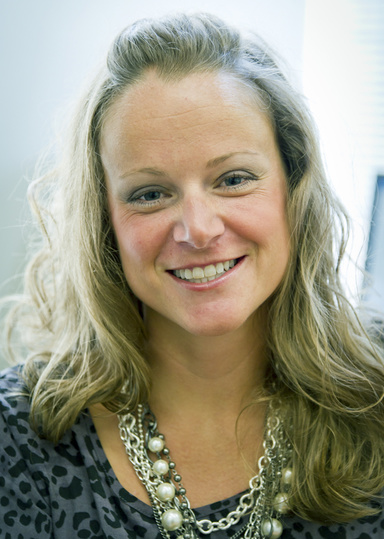
Bruhn’s research has focused on supporting students who struggle with reading and behavior through targeted intervention.
“We know there’s a well-documented relationship between reading achievement and behavior. It’s most evident for kids who are disruptive and defiant,” Bruhn says. “We also know that these students experience the worst school outcomes—they are more likely to drop out of school and engage in criminal behavior.”
Bruhn followed the progress of two junior-high students in Washington, Iowa, who were involved in a targeted reading intervention called READ 180. The students had chronic behavior problems and also were reading below grade level or scored between the 25th and 40th percentiles in the Iowa Assessments.
Bruhn designed a self-monitoring intervention that asked students to rate their performances in areas including attitude, preparation, and performance. Teachers also scored the students with the same scale. If the students received 80 percent of possible points, they selected from a menu of rewards.
Bruhn found that both students’ academic engagement was lowest during whole-group instruction. But the students showed increased engagement and reduced disruptive behavior when the intervention was in place.
She says her next step is to develop and evaluate interactive technology to support the self-monitoring process in the classroom.
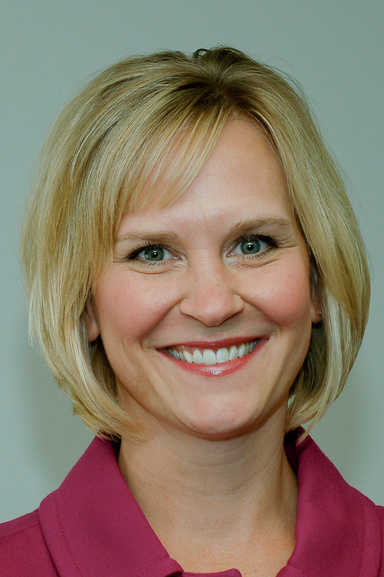
Missall’s project is centered on developing a scale of social competence and social development for preschoolers, who she describes as “tremendously goofy, really compassionate, and much smarter than we give them credit for.”
Missall says her research is unique in that it focuses on pro-social skills, or skills that help kids experience success in the classroom, rather than the more common focus on diagnoses and treatments for students lacking those positive skills.
Missall’s work uses teacher ratings to measure student success based on a scale of 38 items. The scale, which she adapted from an elementary scale to be developmentally appropriate for preschoolers, incorporates teacher-student relationships, peer-to-peer relationships, school involvement, and school adjustment.
She tested her scale with 18 teachers working with 4-year-old preschoolers. Next she will field test and revise the elementary scale, which was last administered in the 1980s.
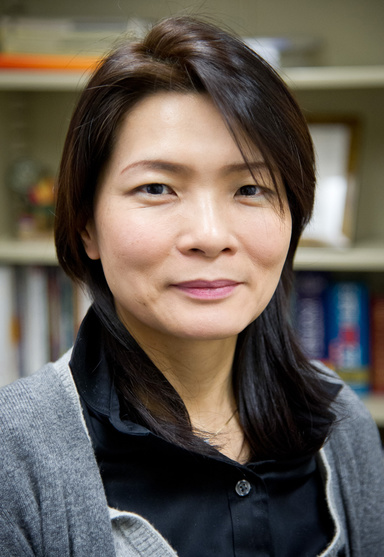
Park is developing and testing ways of measuring teachers’ Pedagogical Content Knowledge (PCK), which is believed to play a vital role in shaping teaching practice and student learning.
“PCK is a distinctive body of knowledge for teaching that differs from content knowledge and pedagogical knowledge,” Park explains. “It enables teachers to transform their content knowledge into forms that are more comprehensible for students.”
Park has been developing PCK measures specifically focused on teaching photosynthesis at the high-school level since 2008. Most recently, she’s developed and administered an online survey to measure teachers’ PCK. She used Faculty Research Award funds to pay for small incentives to increase teacher participation in her survey.
This was the first time the College of Education has hosted a research colloquium to highlight Faculty Research Grant work. College of Education Dean Margaret Crocco says she was pleased to see the interesting variety of presentations “covering such wide terrain.”